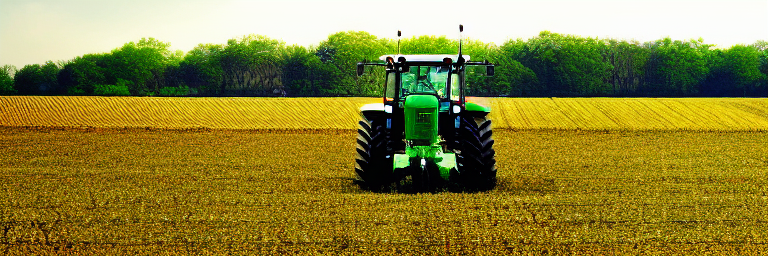Artificial Intelligence (AI) agents are spearheading a transformative revolution in the agricultural industry, offering innovative solutions to address the challenges of feeding a growing global population sustainably. These intelligent agents, powered by advanced algorithms and machine learning, are reshaping farming practices, optimizing resource utilization, and enhancing crop productivity. In this article, we will explore the emerging influence of AI agents in agriculture and their potential to shape the future of food production.
Precision Farming and Data-Driven Insights
One of the most significant contributions of AI agents in education is their ability to deliver personalized learning experiences. By analyzing vast amounts of student data, including performance, learning styles, and preferences, AI agents can tailor educational content and activities to individual needs. These agents can identify knowledge gaps and suggest targeted exercises, helping students progress at their own pace. The result is a more efficient and engaging learning journey, promoting better understanding and retention of information.
Automated Farming Machinery
AI agents are at the forefront of automating farming machinery, making agriculture more efficient and reducing the burden on farmers. Smart machines equipped with AI can perform tasks such as planting, harvesting, and spraying with high precision and minimal human intervention. These agents can navigate fields, detect obstacles, and optimize routes, resulting in reduced labor costs and improved operational efficiency.
Crop Monitoring and Disease Detection
AI agents are instrumental in monitoring crops and detecting diseases at an early stage. By analyzing images and data collected from drones or sensors, AI agents can identify signs of pests, diseases, or nutrient deficiencies. Early detection allows farmers to implement targeted interventions, curbing the spread of diseases and minimizing crop losses. Furthermore, AI agents can suggest appropriate treatment plans, optimizing the use of pesticides and minimizing their environmental impact.
Optimized Resource Management
AI agents play a vital role in resource management in agriculture, including water and energy. By analyzing data on soil moisture, weather conditions, and crop water requirements, AI agents can optimize irrigation practices. This ensures that crops receive the right amount of water, reducing water wastage and conserving this valuable resource. Similarly, AI agents can optimize energy usage on farms, helping to lower operational costs and decrease the overall carbon footprint of agriculture.
Climate Resilience and Predictive Analytics
AI agents are valuable tools in building climate resilience in agriculture. By analyzing historical climate data and predicting future weather patterns, AI agents help farmers make proactive decisions to mitigate the impact of extreme weather events. From adjusting planting schedules to choosing climate-resistant crop varieties, AI-driven predictive analytics can aid in reducing risks associated with climate change, ultimately safeguarding food production.
Improved Crop Breeding and Genetic Selection
AI agents are revolutionizing crop breeding and genetic selection. By analyzing vast datasets on crop genetics, traits, and performance, AI agents can accelerate the development of new and improved crop varieties. These agents can identify genetic markers associated with desirable traits, enabling breeders to make informed selections and develop crops that are more resilient, nutritious, and productive.
The Future of AI Agents in Agriculture
AI agents are ushering in a new era of agriculture, redefining the way food is produced and addressing the challenges of a growing global population. From precision farming and automated machinery to crop monitoring and climate resilience, AI-driven solutions have the potential to revolutionize the industry, making it more efficient, sustainable, and productive. As technology continues to advance, it is crucial for farmers, researchers, and policymakers to embrace AI agents strategically, leveraging their capabilities to create a future where agriculture meets the demands of a rapidly changing world. Through the integration of AI in agriculture, we can cultivate a more prosperous and sustainable future for food production.

